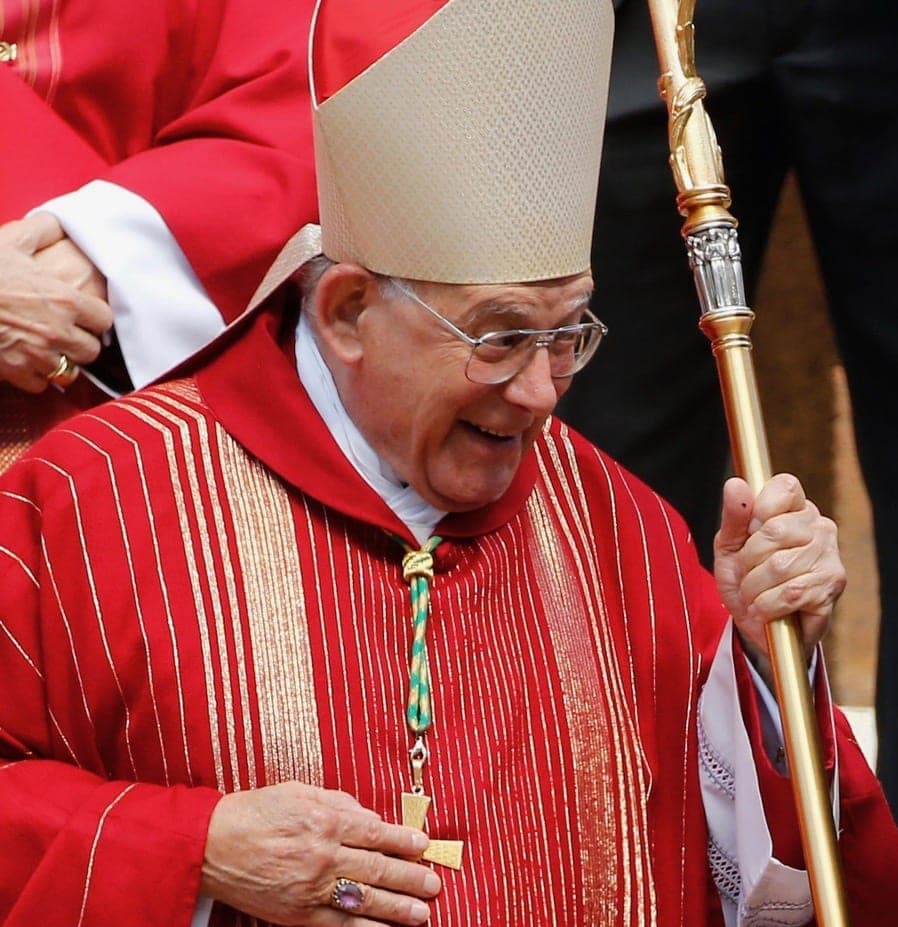When Paul Loverde’s tenure as Bishop of Arlington, Virginia comes to a close next week, perhaps his greatest legacy will be his reputation as a priest with an eye on the peripheries—long before we had a pope who popularized the concept.
Born an only child, and prematurely, to Sicilian immigrant parents, Loverde wasn’t expected to survive. But such a formative experience would instill in him a great respect for the value of life and an appreciation for the deep faith that sustained his family and proved formative to his youth.
Loverde’s parents prioritized his education, sending him to Catholic schools in Connecticut and Rhode Island. After an early call to the priesthood, he studied at the North American College in Rome and was ordained a priest in St. Peter’s Basilica in December 1965.
Serving first as a priest in the diocese of Norwich, he was named an auxiliary bishop of Hartford, Connecticut in 1988 and then appointed bishop of Ogdensburg, New York in 1994, before being named the third bishop of the diocese of Arlington on March 25, 1999. Upon hearing this news, John Cardinal O’Connor, then archbishop of New York, is said to have remarked, “God must love the people of Arlington very much.”
A common theme throughout his ministry has been a commitment to resisting the throwaway culture, which Pope Francis has so often decried.
Soon after his arrival in Arlington, he set up a place of healing for victims of sexual abuse and future prevention. The fact that the diocese of Arlington had been spared much of the fallout from the sexual abuse crisis that plagued the American Church in the early 2000s didn’t stop Loverde from making his diocese a model of best practices and a place of assistance and support for those from all other dioceses.
With that same concern and attention for the marginalized and vulnerable, he has become a regular presence at the annual March for Life in Washington, D.C. He follows the same routine: after completing his own March to the footsteps of the Supreme Court, he quickly returns to the corner of First Avenue NE and Constitution Avenue to greet and encourage fellow marchers to keep up the fight. Though Loverde’s stature can make him hard to spot, pilgrims always know where to look.
The work of Catholic Charities in Arlington has swelled under his leadership, most notably with the 2014 launch of the St. Lucy Project, which serves as a food distribution hub for a growing population of those who do not have enough to eat regularly. In addition, Bishop Loverde has strengthened the diocese’s long-time practice of refugee resettlement.
In 2006 he released a pastoral letter, “Bought with a Price,” in which he took on the rise of pornography and the fallout from the sexual revolution. Eight years later he revised and rereleased the letter, writing: “In the 1970s, I served for a decade in campus ministry settings….Pope Francis’s image of the Church as a ‘field hospital’ in the midst of such wreckage would describe it well. Today’s “field hospital” must aggressively treat the vicious cancer of pornography, which lies at the heart of our societal ills.”
What he lacked in siblings, he made up for in his fraternity with priests and bishops over the past fifty years—sending annual letters to each of his brother bishops on the anniversary of their episcopal ordination, and to priests at the diocese to congratulate them on their ordination anniversaries. At his own 50th anniversary mass to the priesthood, he reflected: “Knowing everything I know, I’d be a priest all over again in a heartbeat. It’s a tremendously fulfilling vocation, and I thank God for calling me.”
In a diocese that is often overshadowed by the much larger Washington archdiocese across the Potomac, you’d think that the media attention and star wattage of his neighbor might be cause for status envy. But Loverde has long resisted the vestiges of power, focusing on the peripheries by improving his Spanish, understanding the growing Vietnamese and Korean communities within the diocese, and living out the four priorities that he laid out upon his installation: evangelization, unity, reconciliation and service.
Next week, as he retires and is replaced by Bishop Michael Burbidge — a Philadelphia native who is currently Bishop of Raleigh, North Carolina — residents of Arlington will be blessed to have a similar shepherd who carries the mantle of a “Pope Francis bishop.” But at the same time they will remember fondly Bishop Paul Loverde, a man who was short in stature but loved them with a huge heart.














